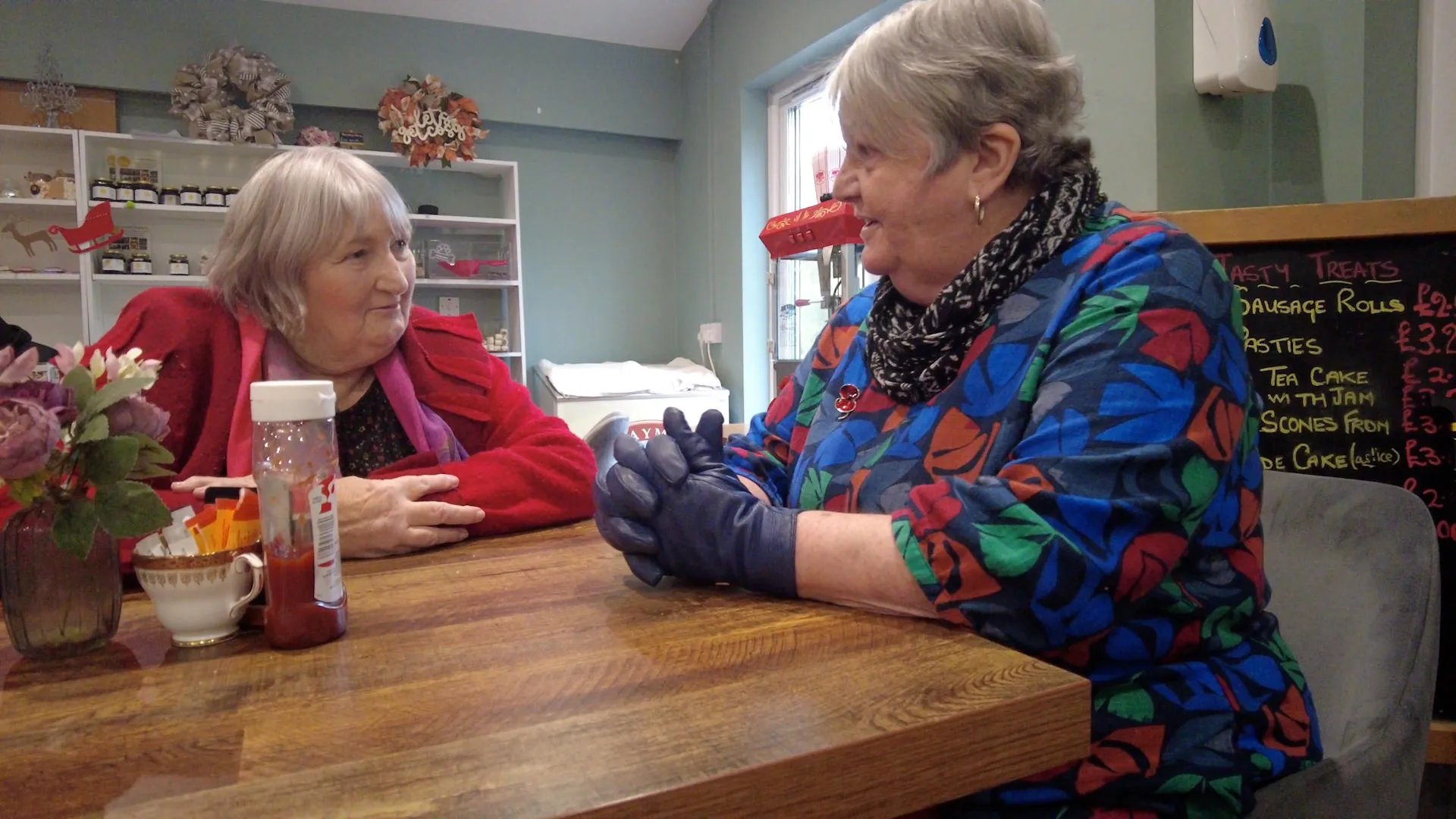Charity Chair finds closure through Restorative Justice after five-figure theft
The chair of a Nottinghamshire charity says she has found peace and closure thanks to Restorative Justice after her organisation fell victim to a £36,000 theft.
Gina Dolan, who was head of Rumbles Catering Project at the time of the offence, said the experience of meeting the offender face-to-face helped her to finally move forward.
The project is a community enterprise providing employment opportunities for adults with learning disabilities, including the offender.
He was somebody Gina had known since he was just eight-years-old and was given a chance to progress in the organisation, until the charity’s accountant uncovered discrepancies and a significant amount of money missing.
The theft took place over an extended period of time at the catering project’s head office, Rumbles Café, based in Vicar Water Country Park in Clipstone, and left Gina and her team devastated.
After the perpetrator was found guilty and received a suspended 24-month sentence, he reached out through the Restorative Nottinghamshire programme, which is commissioned by the Office of the Police and Crime Commissioner for Nottinghamshire in partnership with Nottinghamshire City and County Probation Service.
This led to the perpetrator meeting Gina - a step that would ultimately bring her the closure she needed.
Gina, who was speaking during Restorative Justice week, said: “Restorative Justice brought me closure, and provided me with the answers I needed.
“When you know somebody as well as we did, I felt I had a lot of questions to fully understand why it happened.
“The team came to visit me at home to make sure it was right for me, they listened to my views and came to a decision that this process would work for both of us.
“My advice for anyone considering taking part in it would be to make sure it’s something you are 100% committed to, and don’t let other people stop you from doing it if you know it will give you the closure you need.”
Restorative Justice gives victims the opportunity to seek answers and understanding after a crime. It allows them to communicate directly with the person responsible - either in person or through other means - to ask questions, receive an apology, or gain insight into why the offence happened.
The process can also be transformative for offenders, helping them to recognise the human impact of their actions and often changing their behaviour for the better.
National restorative justice specialists Remedi run the Restorative Nottinghamshire programme, which proactively contacts victims of crime, and aims to raise awareness of restorative justice options, and increase the number of people able to benefit from the process.
Nottinghamshire Police and Crime Commissioner Gary Godden said: “Gina’s experience highlights the real value of Restorative Justice for both victims and offenders.
“It provides victims with the opportunity to ask questions, be heard, and achieve a sense of closure that the criminal justice process alone may not deliver, while also helping offenders understand the impact of their actions and the harm caused to real people.
Through Restorative Nottinghamshire, we are committed to ensuring more victims can access this support and that offenders are encouraged to take meaningful responsibility for their behaviour.”
The Office of the Police and Crime Commissioner also funds Notts Victim CARE, which provides free practical and emotional support to anyone affected by crime — whether directly or indirectly.
Gemma Jennings, Restorative Nottinghamshire Manager, said: “This Restorative Process was a pleasure to facilitate as it brought significant benefits to both parties, helping them to move forward with their lives.
“The communication, both indirectly and in person provided an opportunity for them to discuss what happened, the impact and how they want to move forward from it.
“This involved agreeing any future communication and the offer of support from Gina, should the person responsible need help in the future.
“This demonstrates the power of Restorative Justice and the importance of it being offered.”
